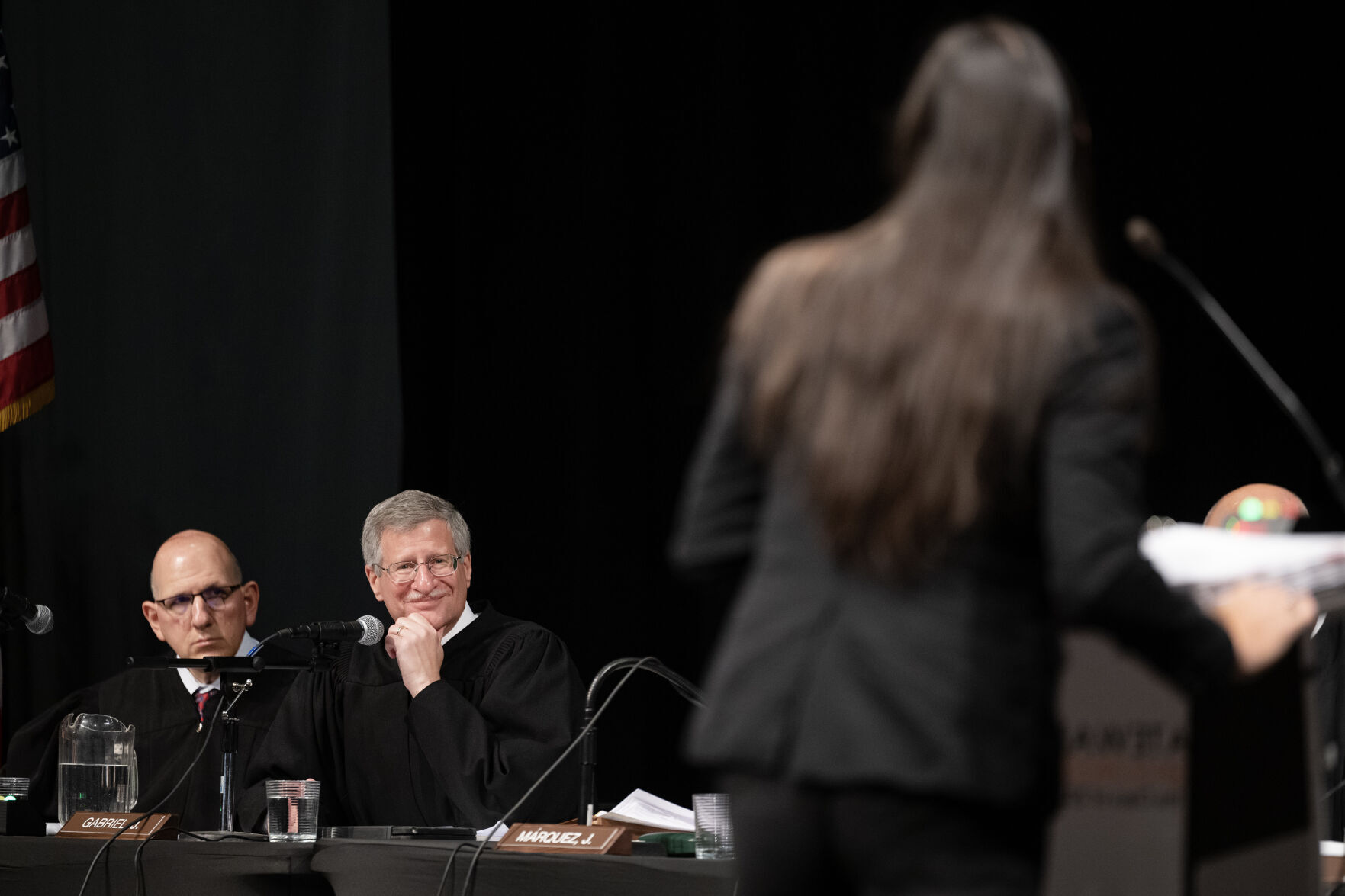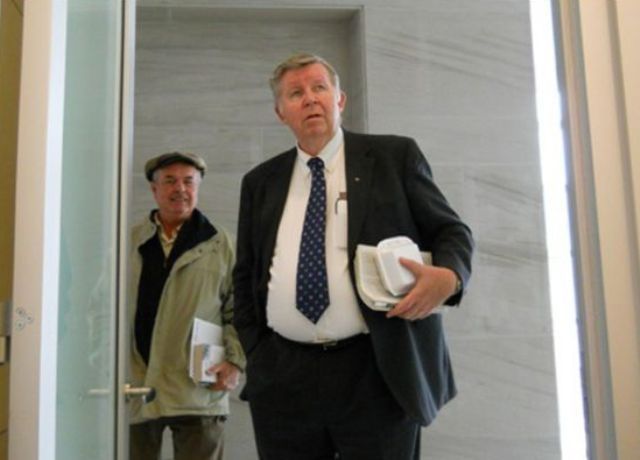Colorado Supreme Court ponders what to do when substituting alternate jurors mid-deliberation

When one juror in Ricardo Castro’s criminal trial became incapacitated 11 hours into the jury’s deliberations and could not continue, there was broad agreement afterward that the trial judge did everything he could to emphasize the need for remaining jurors to begin anew — with the alternate juror replacing her stricken counterpart.
The question now before the Colorado Supreme Court is whether the judge’s meticulous actions were enough to save the jury’s verdict convicting Castro.
During oral arguments on Tuesday, public defender Meredith K. Rose argued Castro’s constitutional right to a fair trial and a unanimous verdict did not simply hinge on the precautions taken by the judge. Instead, the prosecution needed to prove that substituting an alternate juror in the middle of deliberations had no effect on the outcome of Castro’s trial.
The argument came with a twist. Although Rose contended Colorado law does not actually empower judges to substitute an ailing juror once deliberations have begun, she did not believe that detail alone should trigger a new trial for Castro.
“But if we find that the statute says you can’t do this, why is that not just, ‘Full stop, we’re done?'” wondered Chief Justice Brian D. Boatright. “Why can we say ‘Eh, we can massage this a bit?'”
“There are cases where the defendant’s constitutional rights will not be violated by a substitution,” Rose responded, suggesting defendants might agree to subbing in the alternate juror.
In Castro’s 2018 trial for child sex assault, however, he objected to substituting the alternate juror and also objected to proceeding with just the remaining 11 jurors. The prosecution, in turn, objected to the idea of a mistrial. Therefore, it fell to then-Denver District Court Judge Morris B. Hoffman to break the impasse.
The note
Castro’s jury deliberated for 11 hours total until it recessed on Friday evening. One juror’s daughter subsequently alerted Hoffman that her father had a heart attack over the weekend and could not return to finish the case.
On Monday morning, Hoffman addressed the remaining 11 jurors. Before sending them to deliberate, he had selected an alternate juror and told her not to discuss the case with anyone and to keep her mind open, just in case.
Would it be feasible, Hoffman asked the other jurors, to bring back the alternate and restart the deliberations with her?
“If you don’t think you can do it, just let me know,” he added.
Half an hour later, Hoffman received a note from the jury. Of the two offenses Castro was charged with, the jurors had reached a unanimous verdict on Friday for one of them. They were close to unanimity on the second.
“If the question is whether we can approach new deliberations w/ an open mind, because the alternate will be bringing new perspective, yes, we believe it’s feasible. If the question is whether we can enter new deliberations in the same state of mind,“ read the note, “no, we can’t undo all the conversations/learning from prior deliberations.”
Hoffman told the parties that legal precedent in Colorado assumed the substitution of a juror would harm the defendant in some way. But in this instance, “We’ve got a note from the jury that overcomes every dimension of that prejudice that you can imagine.”
He summoned the alternate juror and explained to everyone deliberations would need to start completely anew. Hoffman told the juror she could not let the others rely upon their previous discussions. Hoffman then asked each juror individually if they were able to do that. Yes, they all said.
Five-and-a-half hours later, they returned a guilty verdict.
Castro appealed his convictions, but a three-judge panel for the Court of Appeals believed Hoffman had “painstakingly” ensured the juror substitution still resulted in a fair trial.
“The court took all appropriate precautions with respect to the alternate juror,” wrote Judge Matthew D. Grove for the appellate panel in 2022.
Whether and when to substitute
Before the Supreme Court, Castro argued the question should not be whether Hoffman’s precautions were enough to overcome any assumed harm to a defendant. Instead, the prosecution should have to prove beyond a reasonable doubt that the substitution was harmless.
Because the second set of deliberations took half as long and the jury indicated it could not “undo” its prior conversations, Rose contended the substitution had a likely effect.
She pointed out Colorado law does not explicitly authorize judges to substitute jurors mid-deliberations, nor has the Supreme Court definitively answered the question. While the law notes judges “shall replace jurors” who are incapacitated prior to deliberating, they also “shall” discharge the alternates when deliberations begin.
“Isn’t that your argument, actually?” Justice Melissa Hart asked Rose. The legal standard “is beside the point because the statute just says you can’t substitute in after the jury has started to deliberate?”
“Do you believe there is anything else Judge Hoffman should have done under the circumstances?” wondered Justice William W. Hood III.
There probably was nothing more he could do, Rose responded, “to introduce a new juror and truly reset the brains and minds.”
“I really struggle with this because I feel like they (the jurors) were just being super honest,” Hart said, referring to the jurors’ detailed note to Hoffman. “They were saying something that would be true for every jury: Once you’ve started talking about something, you can’t unhear the thing you’ve heard.”
Justice Carlos A. Samour Jr. worried about forcing judges to declare mistrials when a substitution is required mere minutes into the jury’s deliberations, “and you haven’t done much of substance.”
Assistant Attorney General Frank R. Lawson admitted Colorado law is ambiguous, but he argued judges have always had the authority to substitute incapacitated jurors during deliberations.
But what if a jury deliberates for 11 hours, the alternate is subbed in, and the jury reaches its verdict in a short 30 minutes, pressed Justice Richard L. Gabriel.
“What do we do with that situation?”
Lawson responded some scenarios may be so “extreme” as to indicate the jury truly did not reset its deliberations as ordered.
“To me, 15 minutes for a reconstituted jury compared to 11 hours is suggestive they did not start anew,” he acknowledged. “But the difference between 11 and 5.5 (hours) is completely different.”
The case is Castro v. People.















